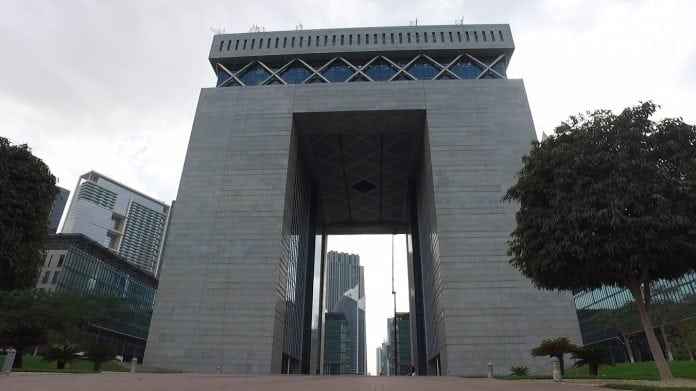
On this month’s episode of ‘Marketplace Middle East’, John Defterios interviews Arif Amiri, CEO of Dubai’s International Financial Centre Authority (DIFC), to discover more about the centre’s innovative growth strategies.
As the leading financial hub for the 7.4 trillion dollar MEASA region (the Middle East, Africa and South Asia), the DIFC was recently ranked in the top ten international financial centres by the Financial Times Banker Magazine. The DIFC has truly positioned itself as a global player in the financial services sector.
Amiri outlines the centre’s success: “Today we have the largest Chinese banks working out of the DIFC, we have the largest five Japanese banks and the top ten Indian banks. Last year, we had the global bank domicile their Middle East and Africa book within the DIFC which brought in assets of 50 billion dollars.”
One thing that the DIFC is banking on for its future growth is FinTech, the region’s first financial technology accelerator. FinTech brings together entrepreneurs with the banks where they are trying to introduce cutting-edge applications. The startup sector is a billion-dollar industry and now major cities across the Gulf want a piece of the action.
Amiri explains why FinTech is essential to the centre’s growth: “Within the DIFC, we thought that it is really important to get both the financial provider and the innovation provider working out of a single platform. So today we have global banks working with startup entities that are eager to deploy their solutions into this part of region. We are seeing real magic happen.”
The DIFC’s growth has been a result of offering products and propositions to banks and other institutions coupled with development strategy. Amiri explains: “They go hand in hand. You need to have world class regulations and soft infrastructures in place but, then again, like every human being would want, every professional would want, [you need] an operating environment that provides the best of lifestyle, office space, and connectivity to everything you need. I think we provide that at the DIFC. It’s a really important element of our proposition, a value proposition through Dubai and the centre itself.”
This strategy appears to be viable and the DIFC are making huge investments on the basis that there will be continued growth. Amiri tells the programme: “We’ve announced our H1 results for 2017 on an analysed figure and we’re looking at about 12 or 13 percent in terms of growth, in terms of number of entities… so that suggests we’re going quite well.”
Amiri summarizes the reasons why the DIFC can be confident in their investments: “If you look three years back, we had volatility in the oil prices. [At that time] we were standing at about a thousand entities within the DIFC and today we’re at 1,750 entities. [Three years ago] you were looking at a balance sheet of about 50 billion US dollars and today we’re at 150 billion US dollars. There is a massive amount of attraction we’re getting, despite oil prices or anything else.”
The DIFC is looking to expand the Islamic economy and asset management is a key target for achieving such growth. Defterios asks Amiri if competing with other Gulf cities and entities will also be part of the centre’s plans for future growth. Amiri responds: “[Dubai] is the natural marketplace [of the region] and I think a little bit of competition is always good. To be able to have the major brands and financial institutions reflected here and doing business, having all the elements that make up a financial centre [is essential]. Whether it’s the regulations we have, the core infrastructure, the connectivity from the busiest airport in the world… I think all of these components make us stand at a very good point and really differentiate us amongst anything else.”



































